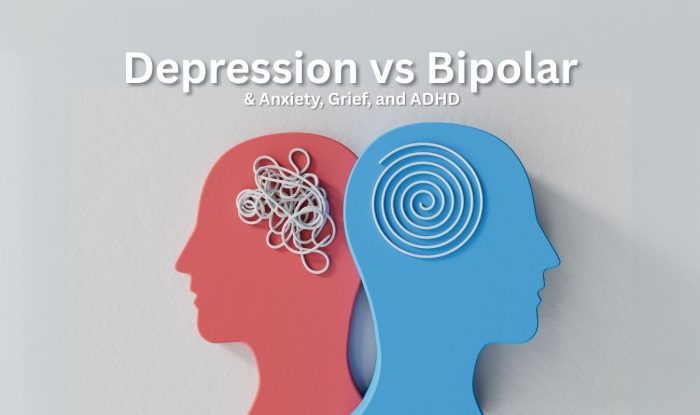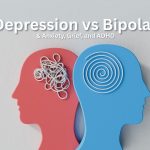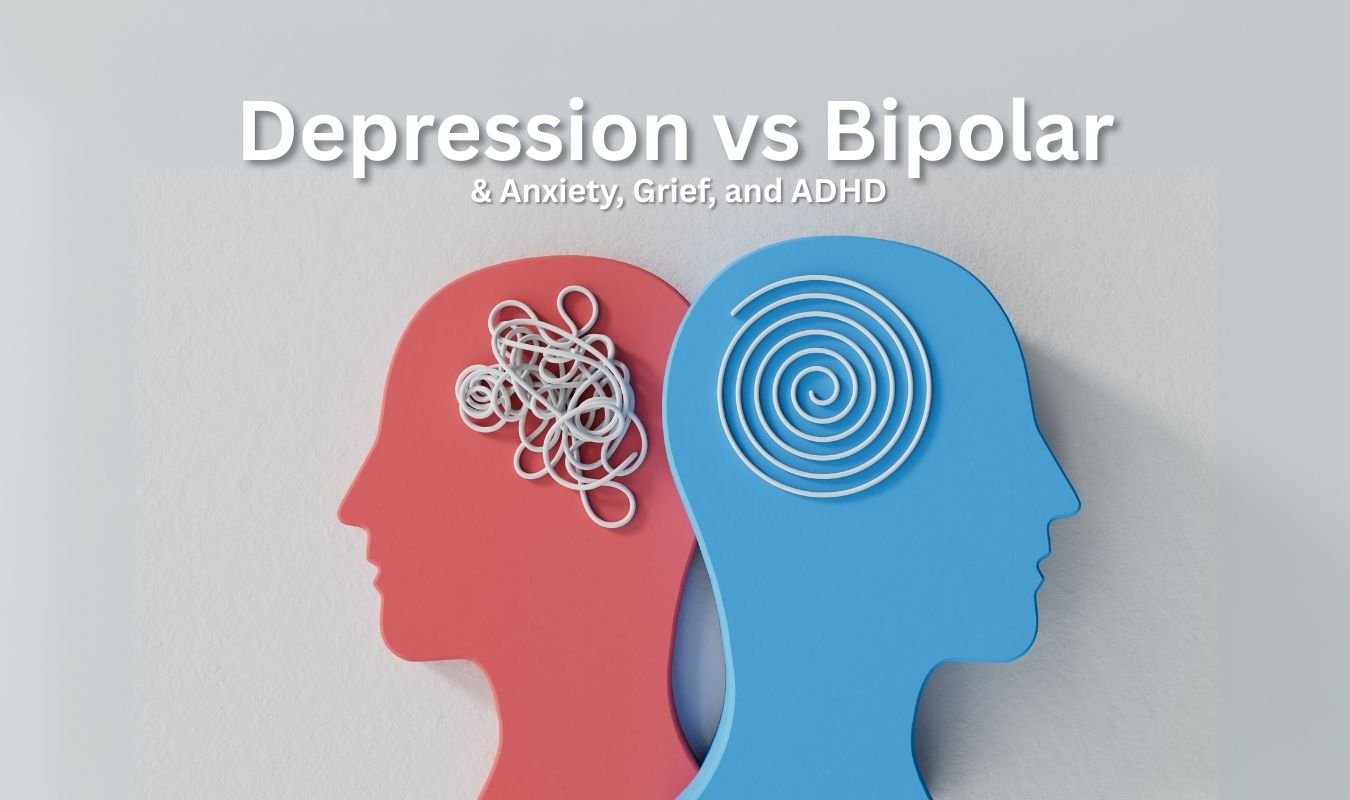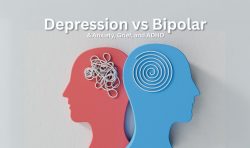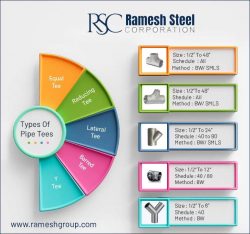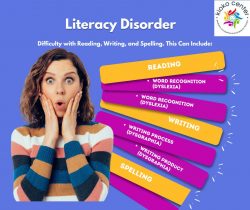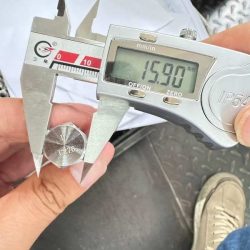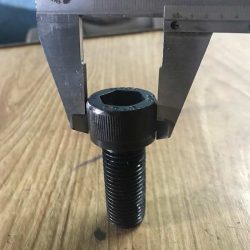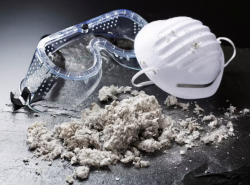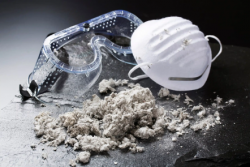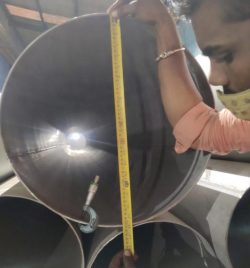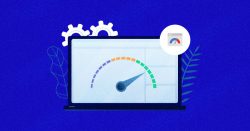Depression vs Bipolar Disorder: Understand the Mood Swings and Mental Health Challenges
Mental health often feels like an invisible battle. While it’s easy to spot a broken arm or a fever, emotional struggles like depression or bipolar disorder often go unnoticed. Many people suffer in silence, unsure of what they’re facing—or how to ask for help. One of the most common points of confusion is the difference between Depression vs Bipolar Disorder. These two conditions might share some similarities, but they have clear differences that shape how they affect individuals.
Let’s take a closer look and break down the key signs, how they differ, and most importantly, how you or your loved ones can take steps toward healing with trusted support like Evolve Psychiatry.
What Is Depression?
Depression is more than just feeling sad or having a bad day. It’s a mental health condition that affects how a person thinks, feels, and functions. People with depression often feel weighed down by a persistent low mood that doesn’t go away. Tasks that once brought joy now feel exhausting. Everyday responsibilities might seem impossible to manage.
Common symptoms of depression include:
-
Persistent sadness or hopelessness
-
Loss of interest in activities
-
Fatigue or low energy
-
Trouble sleeping or sleeping too much
-
Difficulty concentrating
-
Feelings of worthlessness or guilt
-
Thoughts of self-harm or suicide
Depression can develop gradually or appear after a traumatic event, and it can range from mild to severe. But no matter how it shows up, it deserves attention and care.
What Is Bipolar Disorder?
Bipolar disorder is a condition that includes episodes of both depression and mania—high-energy states that feel the opposite of depression. These mood swings are more intense than typical emotional ups and downs.
Bipolar disorder is divided into a few types:
-
Bipolar I Disorder: Involves full-blown manic episodes that may last a week or longer, often followed by deep depression.
-
Bipolar II Disorder: Includes periods of depression and hypomania—a milder form of mania.
-
Cyclothymic Disorder: Includes frequent mood shifts that aren’t as severe but still disruptive.
Manic symptoms might include:
-
Feeling overly happy or “high” for long periods
-
Racing thoughts
-
Talking quickly
-
Reduced need for sleep
-
Impulsive or risky behavior
-
Inflated self-esteem
Unlike depression alone, bipolar disorder includes these highs along with the lows, creating an unpredictable emotional pattern that affects relationships, work, and daily functioning.
Depression vs Bipolar Disorder: Key Differences
At first glance, depression and bipolar disorder can look alike—especially during a depressive episode. But the core difference lies in the presence of mania or hypomania in bipolar disorder.
Feature
Depression
Bipolar Disorder
Mood
Constant low mood
Mood swings: lows & highs
Energy
Typically low
Low during depression, high during mania
Behavior
Withdrawal, fatigue
Impulsivity, overactivity (during mania)
Sleep
Sleep issues
Less sleep needed during mania
Thought Patterns
Negative, hopeless
May switch from dark thoughts to overly optimistic or grandiose thinking
Knowing these distinctions helps individuals get the right diagnosis—which is crucial, because treatments differ.
Why the Right Diagnosis Matters
Misunderstanding Depression vs Bipolar Disorder can lead to ineffective treatment. For example, antidepressants might help with depression, but for someone with bipolar disorder, they could trigger a manic episode if not balanced with a mood stabilizer.
That’s why it’s important not to self-diagnose. Seek expert support. Mental health professionals—like the team at Evolve Psychiatry—take a comprehensive look at your history, mood patterns, and lifestyle before making a diagnosis. This careful approach ensures treatment fits your specific needs, not just the symptoms.
Don’t Struggle Alone—Take Action
Living with either condition can feel overwhelming. But there’s real hope. With proper diagnosis, therapy, medication, and lifestyle changes, people with both depression and bipolar disorder can lead fulfilling, balanced lives.
Here are some steps you can take today:
-
Track your moods: Keep a journal to notice patterns over time.
-
Reach out: Talk to someone you trust or a mental health professional.
-
Stay consistent: Stick to therapy and medications, even when you feel “fine.”
-
Avoid triggers: Manage stress, sleep, and substance use.
-
Choose the right partner in care: Find a psychiatric practice that listens, adapts, and cares—like Evolve Psychiatry.
Final Thoughts
Understanding Depression vs Bipolar Disorder is not just about labels—it’s about clarity, compassion, and getting the right help. Everyone deserves peace of mind, and everyone deserves support on their mental health journey.
If you or someone you care about is struggling with mood swings, overwhelming sadness, or confusing emotional highs and lows, don’t wait. Take the first step. Reach out to Evolve Psychiatry and begin the path toward better mental health. Healing is possible. You are not alone.
Ask ChatGPT
